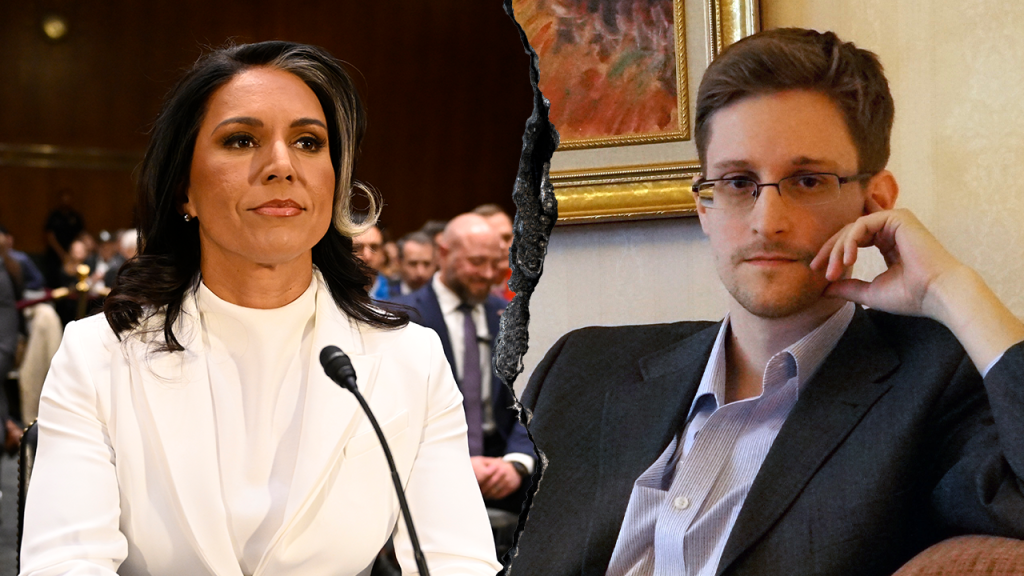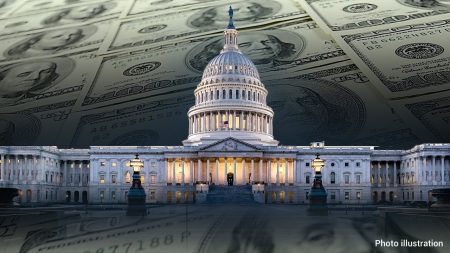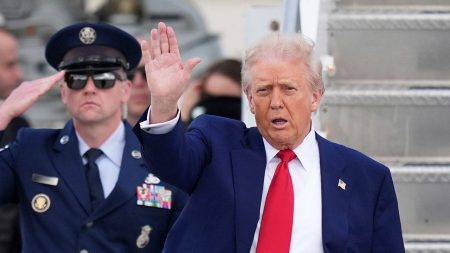Tulsi Gabbard’s nomination for Director of National Intelligence (DNI) has sparked controversy, particularly regarding her stance on Edward Snowden. Gabbard’s refusal to label Snowden a “traitor” during her Senate confirmation hearing raised concerns among some Republican senators, prompting her to elaborate on her position in a Newsweek op-ed. While acknowledging the harm Snowden’s actions caused to national security, Gabbard highlighted the revelation of illegal and unconstitutional government surveillance programs as a mitigating factor. She argued that the term “treason,” a capital offense, should not be used lightly, citing instances where she and others were accused of treason without basis.
Gabbard’s position on Snowden has evolved over time. During her time in the House of Representatives, she co-sponsored a resolution calling for all charges against Snowden to be dropped and introduced a bill to strengthen whistleblower protections. In a 2019 podcast appearance, she credited Snowden with exposing the NSA’s surveillance practices. However, during her confirmation hearing, Gabbard emphasized that she would not condone unauthorized leaks of classified information if confirmed as DNI. Instead, she proposed establishing a direct hotline to her office for whistleblowers while also implementing stricter oversight of intelligence collection programs and security clearance reforms.
The controversy surrounding Gabbard’s nomination extends beyond her views on Snowden. Her past meetings with Syrian President Bashar al-Assad, her previous stance on Section 702 of the Foreign Intelligence Surveillance Act (FISA), and her views on Russia have also drawn scrutiny. Despite these concerns, Gabbard has gained support from some initially skeptical Republican senators, including Todd Young, James Lankford, John Cornyn, and Susan Collins, after providing written assurances about her perspective on whistleblowers.
Gabbard’s confirmation hinges on securing the support of every Republican on the Senate Intelligence Committee, as no Democrats have publicly indicated their support. Senators Mitch McConnell, Jerry Moran, Lisa Murkowski, and John Curtis remain undecided, leaving the outcome uncertain. Gabbard’s confirmation hearing revealed a complex set of views and experiences that have both attracted and repelled senators from both sides of the aisle. Her op-ed provides further context for her position on Snowden, but it remains to be seen whether it will be enough to sway the remaining undecided senators.
Gabbard’s proposed approach to intelligence oversight and whistleblower protections, while aiming to balance national security and individual liberties, raises questions about its practicality and potential impact. Establishing a direct hotline for whistleblowers could potentially bypass established channels and create confusion or even undermine existing reporting mechanisms. Furthermore, the effectiveness of such a hotline would depend heavily on Gabbard’s personal judgment and ability to manage a potentially high volume of reports. Similarly, her proposals for stricter oversight of intelligence collection and security clearance reform, while laudable in principle, require careful consideration to avoid unintended consequences.
The debate surrounding Gabbard’s nomination highlights the ongoing tension between national security and individual liberties, particularly in the digital age. The Snowden case, which sparked a national conversation about government surveillance, continues to be a divisive issue. Gabbard’s attempt to navigate this complex terrain by acknowledging both the harm caused by Snowden’s actions and the importance of protecting whistleblowers reflects the broader societal struggle to balance competing interests. The Senate’s decision on her nomination will have significant implications not only for the future of the intelligence community but also for the ongoing debate about government transparency and accountability.










